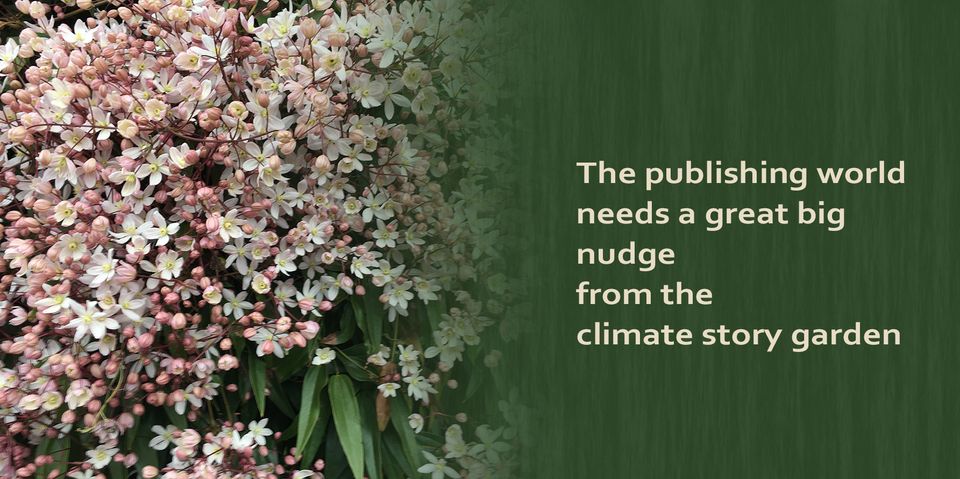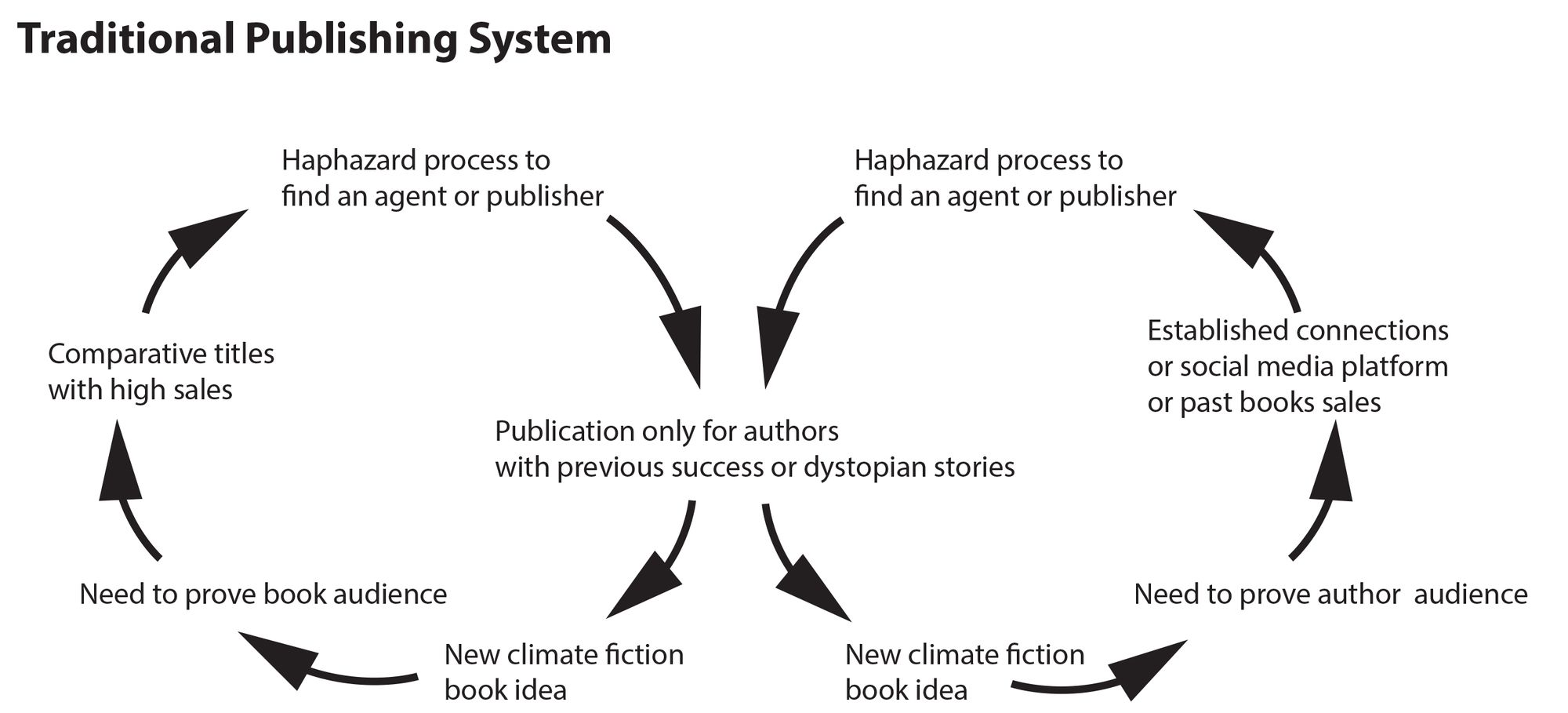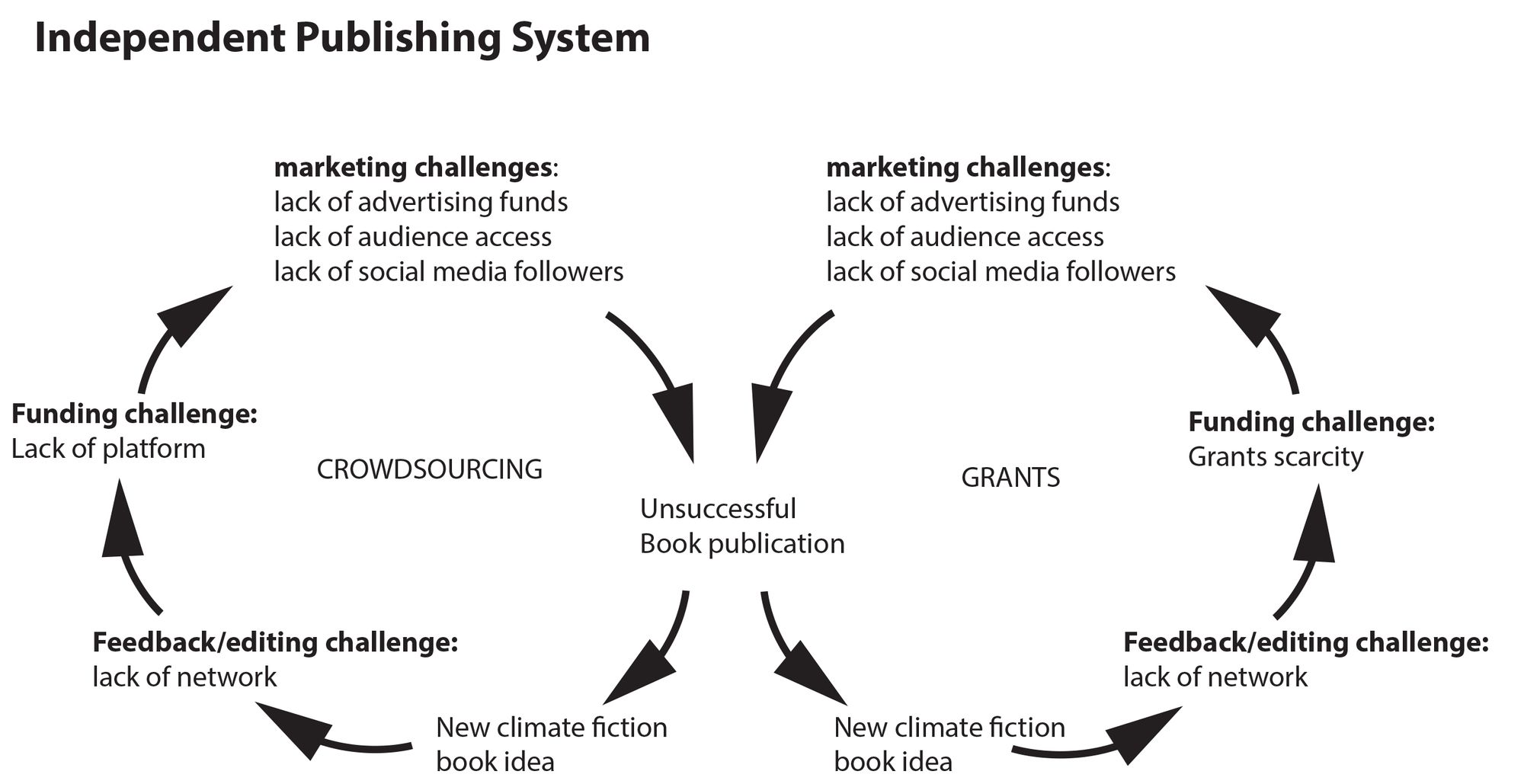Why is this necessary?

First of all, there’s research:
What kind of stories are most helpful for fixing the climate crisis? Denise Baden PhD, author of Habitat Man and Professor of Sustainable Business at the University of Southampton conducted research into readers’ responses to climate fiction. It showed “While the negative stories motivated action for a few, most said they were discouraged.” It was the positive stories that left readers feeling they could do something.
Next, there’s the dysfunctional system:
Our traditional publishing system needs a large audience for publishers to tap into to make a profit. The audience can either be for the book itself or for the author. Books that are hitting hot trends are in demand, and authors with celebrity or a large social media platform are also in demand. Right now, climate fiction is not a hot trend, so publishers are only considering authors who can bring a ready-made audience with them.
This system brings success to the already successful. Instead, we must support the voices of writers who are struggling to break in.

What about the small press?
Yes, a small press may be open to publishing climate fiction, but funding issues can limit the number of titles in their lists as well as their marketing budgets. Cash flow problems may create challenges keeping the title in print. Without an established audience to market to, the book sales may stagnate unless the author can put their own money and energy into getting the word out. A small press can provide editorial feedback, credibility, and some marketing assistance, but they may take more from the proceeds than they offer in assistance. It is a fine line.
What about independent publishing?
Yes, anyone can publish an ebook or a print-on-demand book, but not everyone can market that book. There are three big obstacles to success for the independent author:
- Getting the informed feedback and development support to produce an excellent book that will sell;
- Getting the funding; and
- Marketing that book.

The Climate Story Garden will help address these three obstacles by offering a way to overcome the feedback, funding, and marketing issues. By building that audience for hope-filled climate fiction, writers will get help launching their own books, or they might have a better chance of getting traditionally published, and this will give them the motivation to write the stories we need.
Those stories are out there, waiting to be written. Let's help that happen.